Written by Joydipp Sarkar, a certified travel insurance advisor with over 12 years of experience helping travelers choose the best protection for their trips.
When planning a trip, securing the right travel insurance is essential to protect yourself from unexpected events that could disrupt your journey or cause financial losses. Whether you’re traveling domestically or internationally, understanding the key features of insurance for travel policies is crucial to ensure you get the best coverage for your needs. With many options available, it can be overwhelming to choose the right travel insurance plan. By considering important factors and policy details, you can select the best insurance travel that fits your itinerary and budget. Also sometimes a better Health Insurance also cover while you are Travelling.
1. Coverage Limits: Protecting Your Trip Investment
When choosing a travel insurer, one of the most important aspects to consider is coverage limits. These limits define the maximum amount the insurer will pay for various claims, such as medical emergencies, trip cancellations, or lost belongings. According to the National Association of Insurance Commissioners (NAIC), many travelers underestimate the importance of understanding these limits, particularly for international trips where medical costs can be significantly higher.
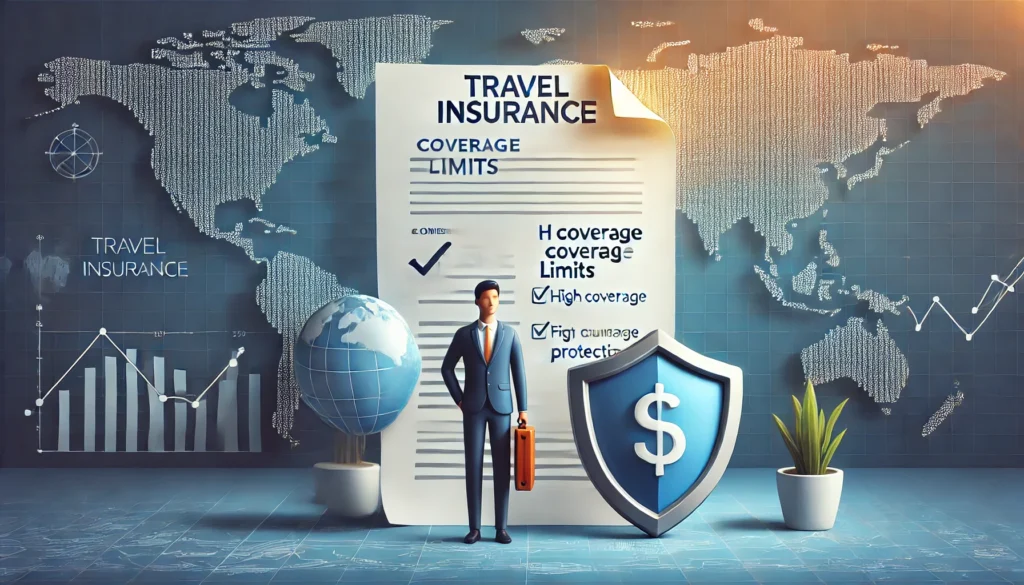
To ensure you’re adequately protected, always check that the coverage limits are sufficient for your travel plans. Opt for plans with higher limits to avoid being underinsured, especially if traveling to countries with higher healthcare costs, like the United States.
2. Medical Emergency Coverage: Your Safety Net Abroad
Medical emergency coverage is a core component of any travelling insurance plan. In case of illness, injury, or an accident during your trip, this coverage ensures you’re protected and won’t face high out-of-pocket medical expenses. Coverage typically includes hospital stays, doctor visits, ambulance services, and emergency medical evacuation.
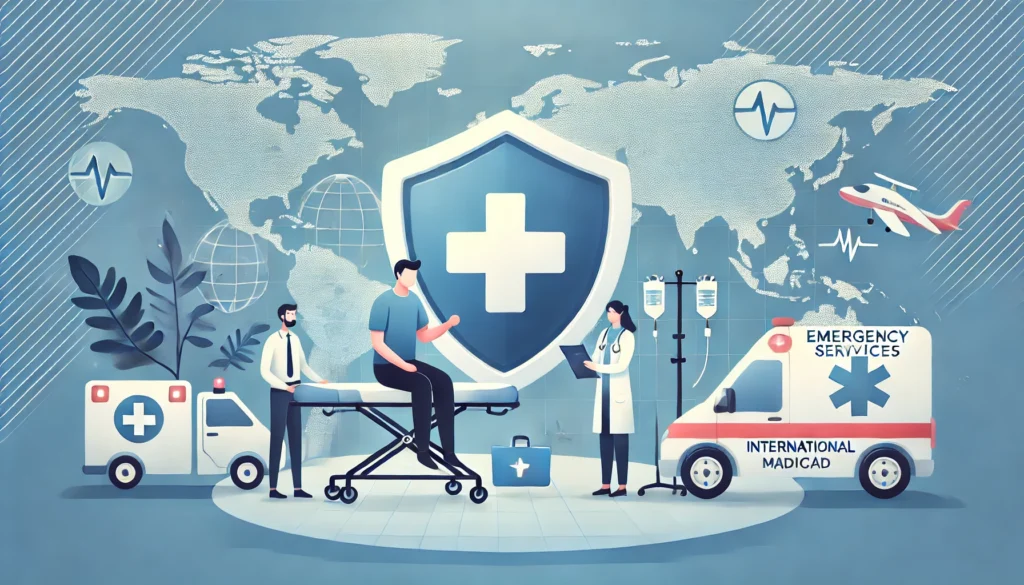
A 2021 study by Travel Insurance Review found that over 30% of insurance travel claims are related to medical emergencies, making this an essential feature. To get the best coverage, make sure your policy applies to your destination country and check for any exclusions or caps on benefits.
3. Trip Cancellation and Interruption: Protecting Your Plans
Another essential aspect of travel insurance is trip cancellation and interruption coverage. This protects you from losing money if you need to cancel or cut your trip short due to unforeseen circumstances, such as illness, injury, or a family emergency. According to InsureMyTrip, travelers who purchase insurance for travel are reimbursed for non-refundable expenses in about 70% of cases.
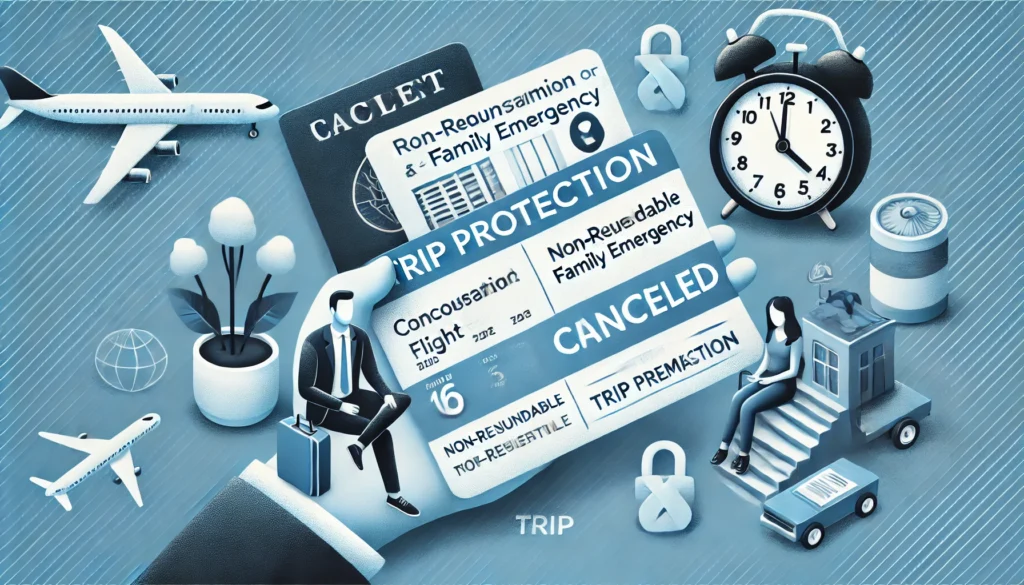
Before buying a policy, make sure you fully understand the conditions and documentation required to file a claim. Choose policies with flexible terms to ensure you’re protected in case of last-minute changes.
4. Baggage Loss and Delay: Compensation for Inconvenience
Travel insurers often cover the loss, theft, or delay of your checked or carry-on baggage. In cases of a significant delay, some policies even reimburse essential purchases like clothing and toiletries. According to a 2022 Travelers Insurance survey, 15% of travelers experience delays in receiving their baggage, making this an important part of your coverage.
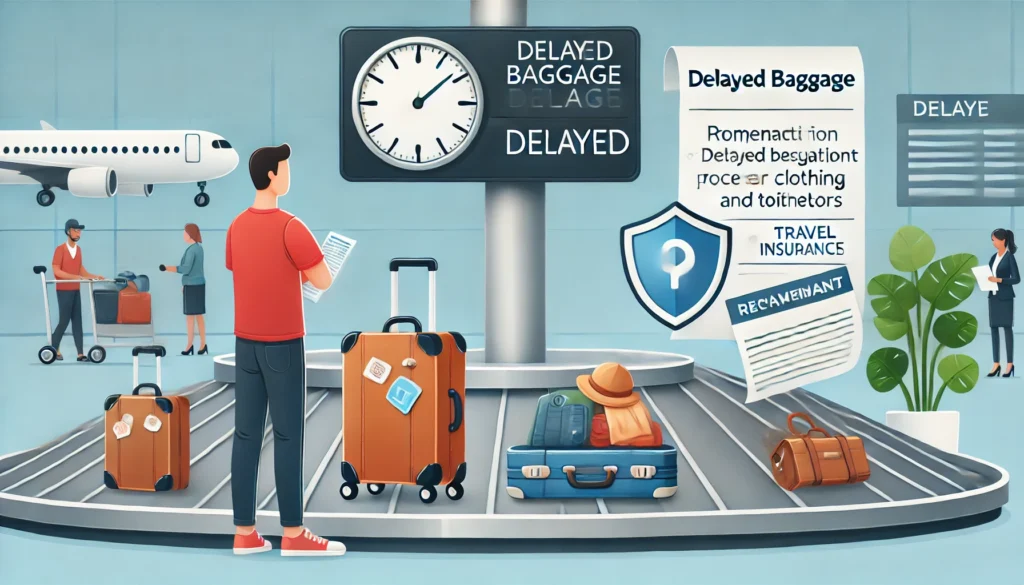
Check the policy’s limits and what types of belongings are covered. Ensure that the amount reimbursed will be enough to replace your essentials if your baggage is delayed or lost.
5. Pre-Existing Medical Conditions: Know the Policy Terms
Many travel insurance plans exclude or limit coverage for pre-existing medical conditions. If you have a pre-existing condition, it’s crucial to carefully read the policy’s terms to see if you’re covered. Some policies may offer coverage for pre-existing conditions, but they may require a waiver or a certain purchase time frame (e.g., buying the policy within a certain number of days after booking the trip).
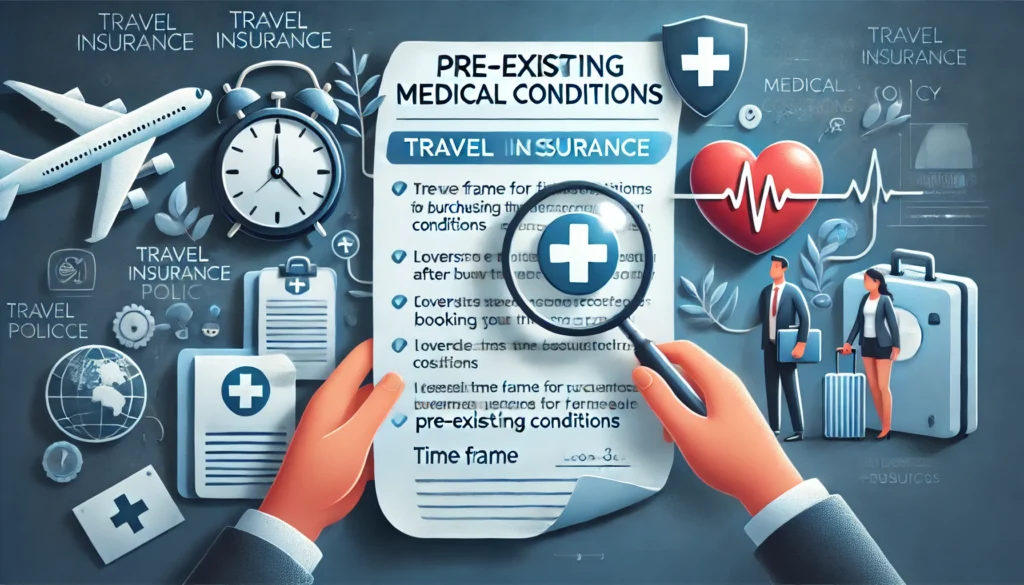
To avoid unpleasant surprises, look for policies that specifically cover pre-existing conditions or consider purchasing a waiver. HealthInsurance.org suggests checking for such coverage, especially if you’re planning a long or complex international trip.
6. Adventure and Sports Coverage: For the Active Traveler
If you plan to engage in high-risk activities like skiing, scuba diving, or trekking, ensure your travel insurance covers these sports. Some policies exclude certain high-risk activities, so verify coverage types and check for any additional premiums or exclusions for adventure sports. The Global Travel Insurance Group reports that 10% of insurance travel claims are related to accidents during sports and adventure activities.

Be sure your travel ins includes adventure sports coverage or purchase additional coverage if necessary to avoid being left uninsured for these activities.
7. Trip Duration and Destination: Policy Suitability
Travel insurance plans often vary depending on trip length and destination. While short domestic trips might require minimal coverage, international trips, especially to countries with higher medical costs or political instability, may need more comprehensive policies.
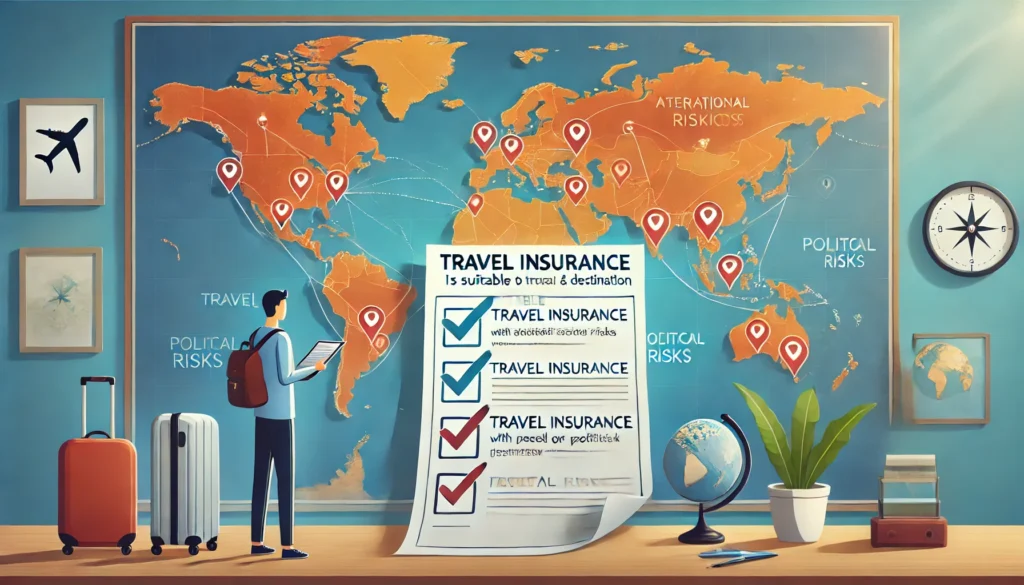
According to the Travel Insurance Association, policies for long-term travel or trips to countries with higher risks may include higher premiums. Always ensure the policy you select is valid for the full duration of your trip, especially if your destination has unique needs, such as specific medical coverage.
8. Emergency Assistance Services: 24/7 Support
Top travel insurers provide 24/7 emergency assistance for travelers. These services can include help with medical referrals, lost passports, emergency travel arrangements, or getting in touch with local hospitals. Having access to such services gives you peace of mind while traveling. According to World Nomads, nearly 25% of travelers required emergency services on their trip, especially for medical issues and lost travel documents.
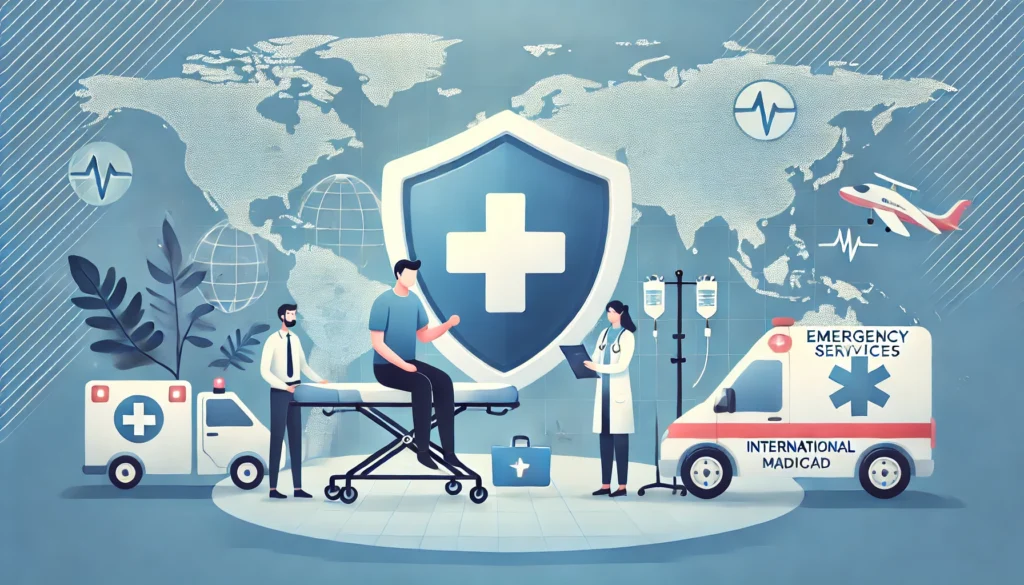
Before purchasing, confirm that 24/7 emergency support is included in your travel insurance policy.
9. Policy Exclusions: What’s Not Covered?
It’s crucial to carefully review the exclusions section of your travel insurance policy to understand what is not covered. Common exclusions include natural disasters, pandemics, and acts of terrorism. Understanding these exclusions ensures that you aren’t caught off guard when filing a claim.
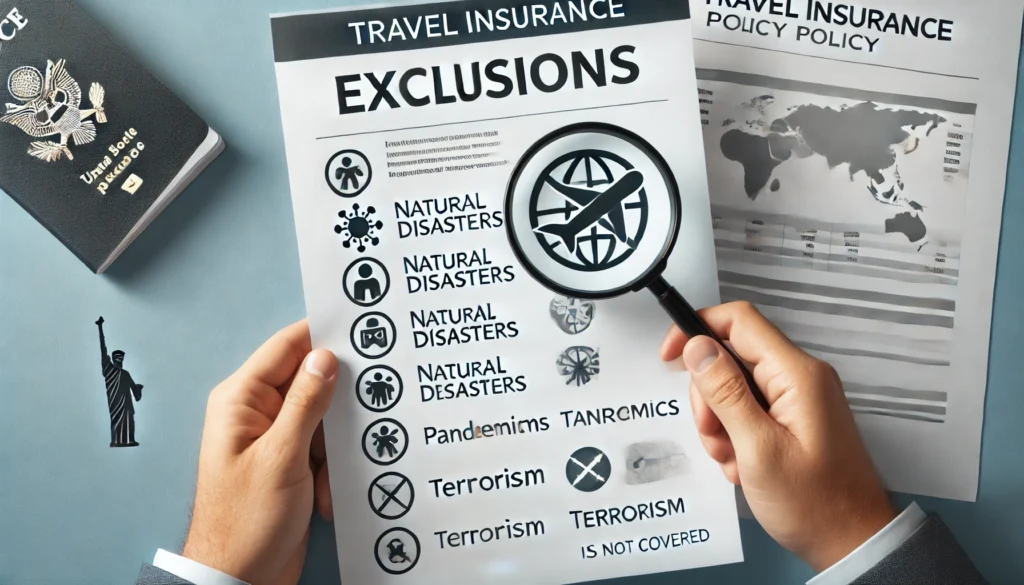
Refer to your insurer’s exclusions list to avoid misunderstandings and plan accordingly for coverage gaps.
10. Claims Process: Ease and Transparency
The claims process should be simple and transparent. Choose travel insurers known for their straightforward claims procedures. Policies offering cashless claims or online claim submissions facilitate quick reimbursement, reducing stress if something goes wrong.

A recent survey from ClaimItNow revealed that travelers preferred insurers with easy-to-follow claim processes, ensuring quicker payouts without unnecessary complications.
11. Travel Delay and Missed Connection: Additional Protections
Some policies offer coverage for travel delays or missed connections due to reasons like weather or mechanical issues. If this is an issue for you, check if your policy provides benefits for such delays and the associated coverage limits.

For example, the Travel Insurance Resource Center suggests reviewing travel delay clauses to make sure that compensation for meals, accommodations, and transportation is included.
12. Coverage for Family or Group: One Policy for All

If you’re traveling with family or as a group, consider plans that allow coverage under a single policy. Group policies often save costs and provide streamlined coverage for everyone, including children and elderly members. According to the Family Travel Association, families often benefit from bundled policies, which offer better rates and comprehensive protection.
13. Customer Reviews and Ratings: Reliability Matters

When choosing a travel insurer, customer reviews and ratings can help you assess the insurer’s reputation. Research insurance for travel through customer feedback and claim settlement ratios. The Better Business Bureau and independent review sites like Trustpilot provide insights into an insurer’s customer satisfaction levels and reliability.
14. Cost of Premiums: Balancing Price and Coverage
The price of insurance travel can vary significantly. Always compare premiums while ensuring the policy provides the coverage you need. The cheapest plan may not offer adequate protection, so ensure you’re getting balanced coverage that aligns with your travel needs.
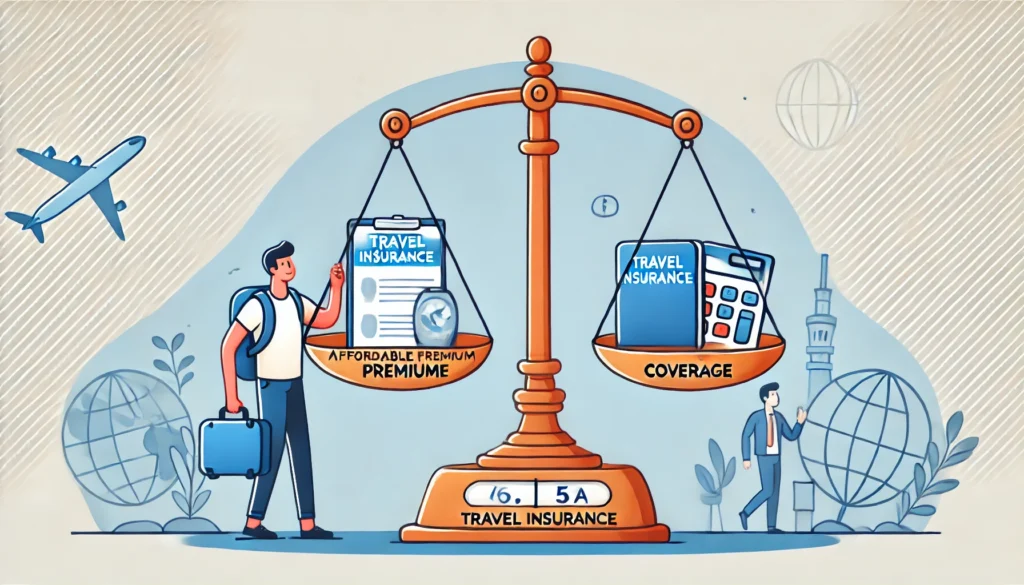
A study by The Insurance Information Institute shows that choosing a comprehensive plan, even at a slightly higher cost, often leads to fewer issues and better protection for travelers.
15. Policy Renewal and Extensions: Flexibility for Changes
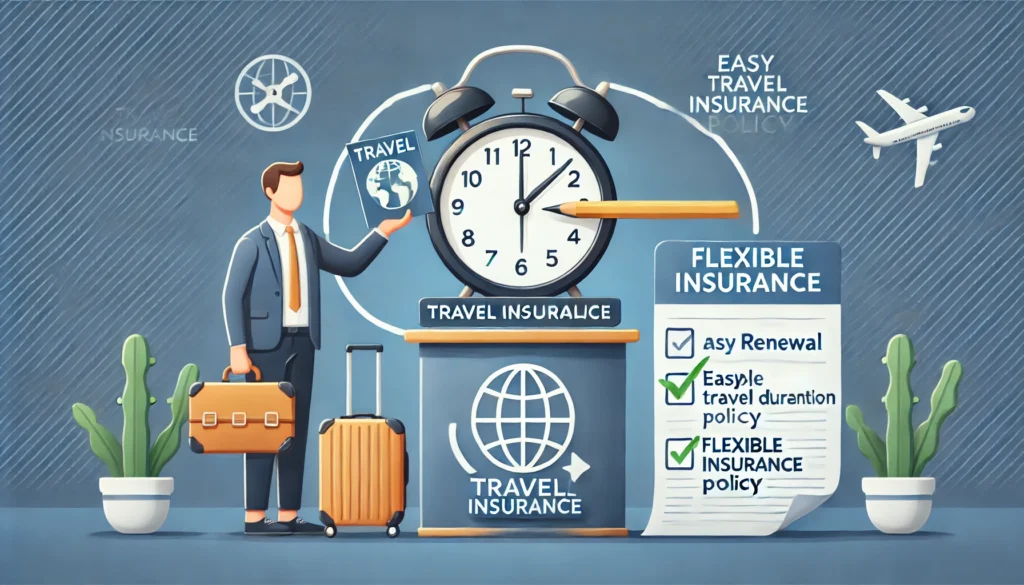
Unexpected trip extensions or changes may require policy renewal or extensions. Make sure your travel insurance provider offers an easy renewal process or extension options if your travel plans change unexpectedly. Flexible policies give you peace of mind that you’re covered even if your trip extends due to unforeseen circumstances.
Conclusion
Choosing the best travel insurance requires careful evaluation of coverage, limits, exclusions, and insurer reliability. Whether you’re booking your first travel insurance plan or seeking better protection, understanding these factors will help you find a policy tailored to your trip and provide peace of mind.
Remember to read the fine print, compare multiple plans, and consult with reputable travel insurers to confidently secure your travel investment. With the right insurance for travel by your side, you can enjoy your travels worry-free.
